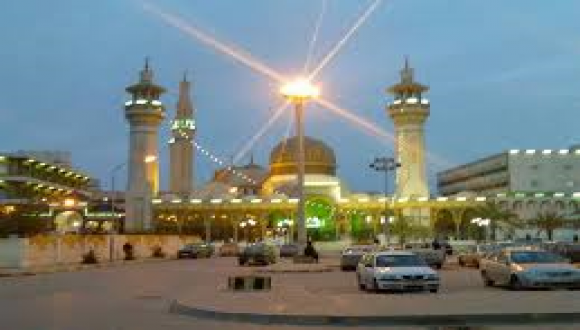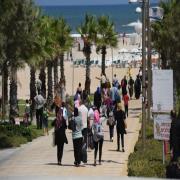Rural Electrification from Alternative and Renewable Sources
The installation of solar panels and wind turbines in rural areas will provide poor communities with the necessary electricity for their basic needs and requirements.
The installation of solar panels and wind turbines in rural areas will provide poor communities with the necessary electricity for their basic needs and requirements.
Rural Electrification from Alternative and Renewable Sources (REARS) for Pastoral and Semi Nomadic Communities: the South Hebron Masfara as Case Study
Rural Electrification by Alternative and Renewable Sources (REARS) enables poor peripheral populations to by-pass the expensive and long drawn-out phase of having an electricity infrastructure installed by central government. Structured in a similar way to satellite phone networks that provide third world communities communication opportunities without a wire telephone infrastructure, REARS projects are emerging in many parts of the world. Western industrial corporations are becoming increasingly interested in this line of activity, both as CSR endeavours as well as a profit-making business[1].
The REARS project, implemented by COMET-ME (Community Electricity Middle East) has been installing solar units and slightly bigger wind turbines for Bedouin households near Yatta (south of Hebron) since 2007. A recipient of grants from the German, Danish and New Zealand Foreign Services and from various European NGOs, the project has so far installed 150 Watt/hour individual solar panels in over 80 households living in tents, shacks and caves, plus 8 wind turbines producing 1-3 kW per hour that serve villages of between 5 to 10 household. The smaller units are used primarily for lighting, TV sets and cell phone chargers, while the turbines provide power for refrigerators and butter separators, thereby enhancing the community’s ability to store and market dairy products.
The Proposed Research
The proposed research, to be based on ethnographic work and carried out in 2012-2013, will look at the impact, challenges and potential that REARS might have for the relevant communities. Looking in particular at shifting levels of energy consumption following installation, the impact on women and gender roles, the effect on technological proficiency and technical education in the community, changes in norms and practices of sharing, and the impact on perceptions of and relationships with external energy providers, this study could be relevant as an input for Social Science in guiding similar projects in a variety of third world settings.
[1]Kimberly-Clark, owners of the Duracell brand, for one example, are currently looking into sponsoring renewable energy installations in refugee camps in Africa, with a view of both a philanthropic contribution to communities at risk and a potential emerging market for a new generation of batteries that will be recharged from local renewable energy sources.








